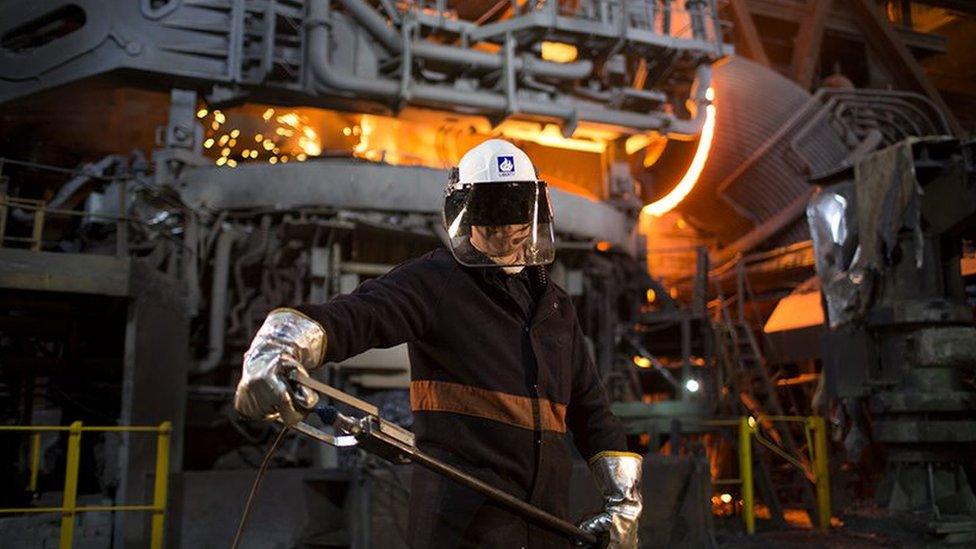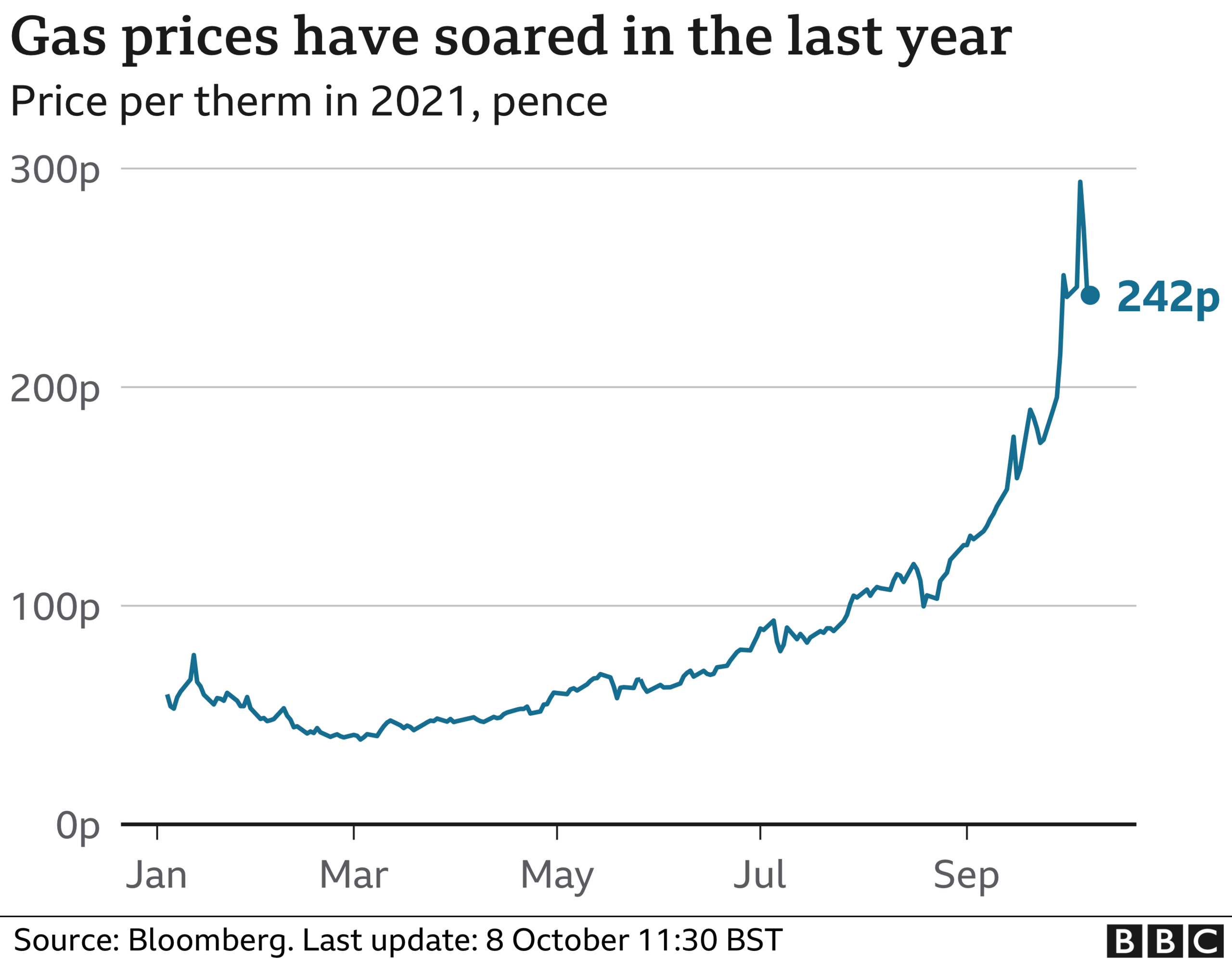Energy prices: Steel boss says government offers no solution
- Published
- comments

The government has failed to find solutions to halt soaring energy prices, UK Steel boss Gareth Stace has said.
He was speaking after leaders of energy-intensive industries met with Business Secretary Kwasi Kwarteng.
"We can't wait until Christmas and beyond. Or even a few weeks. We need action now, it needs to be swift, decisive action," Mr Stace said.
The government said it was exploring ways to manage high energy costs.
Gas prices have risen 250% since January, pushing up costs dramatically.
Mr Stace told the BBC that Mr Kwarteng had listened but had provided "no immediate solutions or guarantees".
The UK Steel director general said he was "baffled" because governments in the rest of Europe had stepped in to support industry, although they faced lower energy costs than in the UK.
Representatives from energy-intensive sectors including paper, glass, cement, lime, ceramics, chemicals and steel were at Friday's talks with the business secretary.
The Energy Intensive Users Group (EIUG) said it hoped the government would find ways to support those sectors.
Mr Kwarteng told the business representatives he would continue to work with them to tackle the problem.
His department said the government would assess the options put forward by the industry, with his spokesperson saying: "We recognise the recent increase in global gas prices will be a cause of concern for businesses in the UK.
"We are in regular contact with Ofgem and business groups to explore ways to manage the impact of rising global prices."
Mr Kwarteng also stressed government confidence in the security of gas supplies this winter.
After the meeting, EIUG chair Richard Leese said the government had made "positive first steps to develop practical solutions".
"EIUG will work with government to avoid threats both to the production of essential domestic and industrial products, as well an enormous range of supply chains critical to our economy," he said.
Andrew Large, director-general at the Confederation of Paper Industries, said there were "serious" risks factories could stop operating as a result of the gas prices being too high.
There have already been stoppages at fertiliser and steel plants due to high energy costs.
However, he said the business secretary appeared to share industry's desire to avoid any potential supply chain disruption.
On Thursday Mr Kwarteng said the government's strategy to shift to "clean" power sources by 2035, including wind, solar and nuclear, would reduce reliance on fossil fuels.
"The volatility of the gas price has shown we do need to plan strategically and net zero helps us do that," he said.
Speaking before the meeting, Mr Stace had said if the government failed to act it could "strangle steel production" in the UK.
A crisis in steel production as a result of high energy prices would affect the wider economy, he added, saying the government should consider taking additional action in the short term.
"We're pausing production already in terms of some steel producers in the UK.... and it's going to happen more often unless something is done, or the energy market corrects itself and I don't think that will happen any time soon."
He said the government should address the disparity in energy costs for UK steel makers who he said were paying 50-80% more for electricity than German producers.
Other countries, such as Italy and Portugal, had "committed billions of euros" to address the rising cost of gas, he added.
"If the government does nothing then tomorrow, there'll be a steel crisis, and given in terms of what impact that could have on jobs, then that wouldn't be good, not only for the steel sector, for those regions where steel is, but for the UK economy as a whole," he said.
The price of wholesale gas has soared since the start of the year. And the UK has lower levels of gas stored than other European countries, which could help cushion price volatility.

Domestic customers' bills are partly protected from these sharp rises by a price cap, managed by the regulator Ofgem, which limits how far and how fast bills can rise.
Nevertheless, UK households have felt the impact after the price cap was raised at the start of October.
Customers will see further "significant rises" in the spring, regulator Ofgem has warned.
The cap is revised twice a year and is next due to be changed in April.
It applies to households in England, Scotland and Wales this month.
Households in Northern Ireland have also seen a recent sharp rise in their bills, but they are not protected by the energy price cap for Great Britain.
Related topics
- Published8 October 2021

- Published7 October 2021

- Published7 October 2021

- Published26 May 2022

- Published6 October 2021

